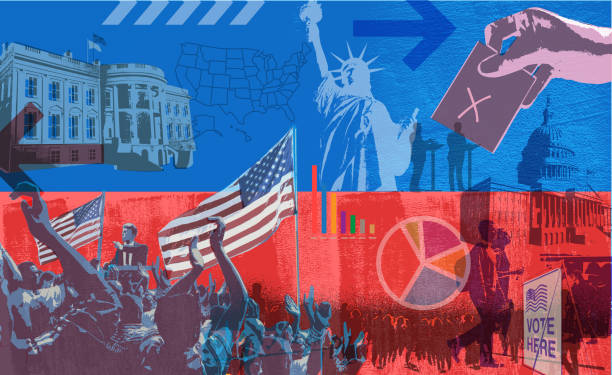
Why Your Daily Routine Might Be More Political Than You Realize
Josh Shear – When we think of politics, most people imagine elections, debates, or government policies. But what if the truth is far closer to home than we assume? The idea that your daily routine might be more political than you realize is not just provocative, it’s an eye-opening realization. From the coffee you sip in the morning to the platforms you scroll through at night, your everyday choices are embedded in networks of economic, social, and ideological power.
Your routine is not simply personal. It’s shaped by policy, driven by industry, and reflective of cultural narratives that evolve through political forces.
Let’s start with something as simple as your morning cup of coffee. If it comes from a major chain, chances are you’re participating in global supply chains that involve fair trade issues, labor rights, and environmental impact. That choice of brand, roast, or even whether it’s dairy or oat milk carries a political story.
Was the coffee ethically sourced? Are the farmers being paid a livable wage? Is the packaging sustainable? These aren’t just consumer questions. They are reflections of how your decisions connect to policies on trade, environmental regulation, and workers’ rights.
Your coffee is more than caffeine. It’s part of a global economy shaped by laws and lobbying.
Choosing to support local businesses versus shopping at a multinational retailer might seem like a lifestyle choice, but it is also political. It reflects values about community, labor practices, and corporate responsibility. When you pick one store over another, you are indirectly supporting business models that align with certain tax policies, wage standards, and even environmental positions.
Moreover, the types of apps you use for grocery delivery or transportation often involve political debates about gig economy regulations, worker protections, and antitrust concerns. Simply opening an app can mean engaging in ongoing policy battles without even realizing it.
Think your social media feed is just a place to relax? Think again. The algorithms that curate your news, videos, and ads are controlled by companies that lobby governments, influence public opinion, and shape cultural norms.
What you see or don’t see is a result of corporate and governmental influence. Whether a post gets promoted or silenced often reflects policies around free speech, content moderation, and surveillance. The way you scroll is being guided by invisible hands connected to very real political decisions.
Your likes and shares become data that fuel campaigns, shape elections, and target you with specific ideologies. The digital space is not neutral. It’s a political battlefield masked in entertainment.
Read More: Millionaires Are Buying This Asset While Everyone Sleeps
Consider your dietary habits. Are you vegan, gluten-free, or following a government-recommended meal plan? These choices, while personal on the surface, are influenced by agricultural subsidies, health guidelines, and food labeling laws.
The food pyramid? Built by political lobbying. Nutritional guidelines? Often negotiated between health experts and food industry advocates. Even your ability to access healthy food may be determined by zoning laws, public transportation systems, or welfare programs.
The way you eat, shop, and take care of your body reflects the values and decisions of the society around you.
Your transportation method—whether driving a car, taking a bus, or riding a bike—is also laced with political meaning. Public infrastructure is a product of government investment, urban planning, and lobbying from industries like oil, automotive, or tech.
Driving to work might feel independent, but it’s supported by policies on fuel subsidies, road maintenance, and emissions standards. Taking public transport, on the other hand, often aligns with progressive values about environmental impact and equity. Choosing one over the other can reflect not just personal convenience but a political identity.
We often hear that politics is “everywhere,” but rarely do we reflect on just how embedded it is in the most mundane parts of life. From what we wear to how we sleep, the conditions that enable these decisions are crafted in government chambers, corporate boardrooms, and activist circles.
Your daily routine is not isolated from the systems of power around you. In fact, it is the very expression of those systems in motion.
Why Your Daily Routine Might Be More Political Than You Realize is not just a clever headline. It’s a call to awareness. The way you live your life—every choice, every purchase, every scroll—is deeply connected to the political forces shaping our world.
By becoming more conscious of these links, you’re not just making better decisions for yourself. You’re participating more actively in the world around you. And perhaps that’s the most powerful political act of all
This website uses cookies.